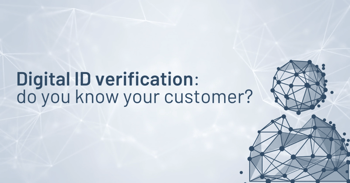
The real estate industry has gone through incredible changes in the last few years, and both professionals and consumers have enjoyed the benefits. Thanks to innovations like remote signing and virtual viewings, the process of buying or selling a property has never been more accessible.
But those same technologies have also made things easier for fraudsters by increasing their access to information, and reducing the amount of time they need to spend interacting in person.
The last major obstacle a fraudster needs to overcome on a transaction is showing high-quality ID cards with their target’s information, such as date of birth, and the fraudster’s photo. But the most worrying part is that fraudsters are able to do this in person.
“We’ve never seen the sophistication in the duplication of these documents that we’re seeing as of late,” said Daniela DeTommaso, President of FCT. “Everybody [on these transactions] is doing their job. Identity has been reviewed multiple times before we see it, but from a mere visual scan, you would often not even know that this documentation wasn’t real.”
Digital ID theft is easier than you think
Fraudsters have more options than ever to gain access to IDs. For example, if their target is using a public Wi-Fi network, a fraudster can intercept personal data as it moves to and from the cloud.
Phishing is another popular ID theft technique. By posing as communication from a trusted organization like a financial institution or government body, a phishing email or text sends the target to a cloned version of that organization’s website. But when the target enters their login credentials, they’re provided directly to the fraudster, who can use them to impersonate their target.
The title fraudster doesn’t even need to be the one who stole the ID. Data breaches at companies holding customers’ personal information and/or IDs can lead to future title fraud. That information may end up published on the dark web—the portions of the internet not indexed by search engines and only accessible with special software.
Hackers use these sites to advertise IDs for sale. Ransomware groups often use them to publish stolen personal information as the punishment for organizations not paying the ransom. Someone looking to commit title fraud can browse the IDs and other personal information on offer until they find an ideal target to impersonate.
AI is powering more sophisticated impersonation
Fraudsters are taking full advantage of powerful new tools to evade detection. Unfortunately, thanks to generative AI, many reasonable assumptions no longer apply when communicating with clients. For instance:
- Phone calls: AI text-to-speech tools and real-time voice modulation let fraudsters change their apparent age, gender and accent to better match their story, and spoofing tools can make the call appear to come from the phone number of a fraudster’s choosing.
- Virtual meetings: deepfake technology is faster and more accessible now, and can replace a fraudster’s face with a homeowner’s in real time.
- In-person transactions: fraudsters’ fake IDs are better than ever, and have even passed in-person inspection.
Client ID Verification is the best defense
Legal professionals need a verification solution they can rely on, even for in-person transactions. Client ID Verification from FCT lets you verify your clients’ identities quickly, easily and from anywhere. All the client needs is their smartphone and two pieces of government ID, like a driver’s licence or chip-enabled passport.
They download the mobile app, take a selfie, and photos of both sides of their ID, then send them to the service provider. The provider completes the process in minutes, before informing you and your client that the identity has been verified.
Where are clients’ private data kept?
The information submitted to any digital ID verification solution is highly sensitive, which is why FCT’s Client ID Verification was designed with client security and privacy as a top priority.
During the transaction, third party requests for clients’ personal data are processed through the app, and only your client has control over who to share it with.
Once their identity has been verified, their information is kept encrypted in a digital wallet on their smartphone, not a central server. They can then use it for faster access to other supported ID-enabled services for up to five years. Alternately, they’re free to delete their verified ID token from their device at any time.
As title fraud evolves, the best way to prevent it is to evolve as well, with Client ID Verification from FCT.
Services by First Canadian Title Company Limited. The services company does not provide insurance products. Some products/services may vary by province. Prices and products/services offered are subject to change without notice.
®Registered Trademark of First American Financial Corporation.






































-min.jpg?width=350&height=216&name=title-fraud-homeowner-protection-blog%20(1)-min.jpg)

-min-1.jpg?width=350&height=216&name=home-theft-tile-fraud-toronto-blog%20(3)-min-1.jpg)

-min.jpg?width=350&height=216&name=FCT-Leading-Insights-Michael-LeBlanc-ENG_blog%20(1)-min.jpg)






-min.jpg?width=350&height=216&name=errors-and-omissions-ontario-real-estate-law-risk-blog%20(1)-min.jpg)




















-min.jpg?width=350&height=216&name=Three-signs-your-clients...-Blog%20(1)-min.jpg)













.jpg?width=350&height=216&name=Blog-Post-EasyFund-2-Steps-min%20(1).jpg)





-min.jpg?width=350&height=216&name=June-28th-Were-so-Canadian2%20(1)-min.jpg)
